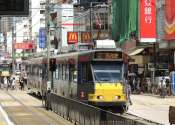Shoppers' mobility habits: Retailers overestimate car use
Retail traders often fear that reducing the amount of urban space made available for parking private vehicles would have a negative effect on their businesses. A survey conducted by researchers from the Institute for Advanced ...









